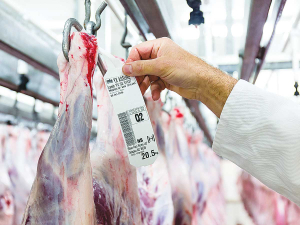Meat Industry Association CEO to Step Down
The Meat Industry Association of New Zealand (MIA) today announced that Chief Executive Officer Sirma Karapeeva has resigned from the role.
 Compared to last August, the volume of overall sheepmeat exports increased by 6% to 25,162 tonnes but the value decreased by 13% to $236m.
Compared to last August, the volume of overall sheepmeat exports increased by 6% to 25,162 tonnes but the value decreased by 13% to $236m.
New analysis from the Meat Industry Association (MIA) reveals a New Zealand red meat sector under pressure from global market challenges.
The analysis, based on the August 2023 trade data, shows red meat exports were worth $730 million in August 2023, a 16% drop on the same month last year.
The main decline was in exports to China, which were down 44% to $213m.
In contrast, exports to the United States were up 26% to $188m, and exports to Canada were up 136% to $40m.
MIA chief executive Sirma Karapeeva says the decline in overall exports partly reflects that last year was a record for exports in August, however, New Zealand is also facing growing competition in China.
“Meat competition has increased significantly in China and there are now 42 countries exporting meat to the country – 30 for beef alone,” says Karapeeva.
She says that the volume of Brazilian and other South American beef on the China market is significant and that is what is driving down the price overall.
“Australian producers are exporting significant volumes of mutton to China at a low price,” she says. “Conservative consumer spending is also driving down pricing.
“In the United Kingdom, we are now seeing the benefits of the UK-NZ Free Trade Agreement for beef exporters with an increase in volume and value compared to the same period last year.
“In North America, the United States is emerging from a drought and entering a herd rebuilding phase, which suggests a positive outlook for beef in that market for the future.”
Compared to last August, the volume of overall sheepmeat exports increased by 6% to 25,162 tonnes but the value decreased by 13% to $236m.
The decline in value was mainly due to a decline in the value of exports to China, which were down 25% to $73m, compared to last August.
The average Free-on-Board value of exports to China was $5.79/kg in August, the lowest that it has been since March 2018.
Sheepmeat exports to the other two major markets, the US and UK, increased compared to last August, with the US up 22% to $41m and the UK up 20% to $19m.
The volume of overall beef exports increased by 4% to 41,466 tonnes but the value decreased by 17% to $340m.
The main decline was in exports to China, which were down 37% by volume to 14,691 tonnes and 56% by value to $101m.
While this was a large drop, it was from a near record export volume and value to China last August.
Exports to the US continue to recover from low levels last year as the US drought eases and US domestic beef production drops. Compared to last August, exports to the US were up 118% by volume to 13,650 tonnes and 82% by value to $117m.
There was good demand in Canada, with the volume up 284% to 3,192 tonnes and the value up 230% to $25m.
While beef exports to the UK are much smaller, New Zealand continues to benefit from the new beef quota under the UK Free Trade Agreement.
Over the first three months of the FTA (June-August), NZ has exported 653 tonnes of beef, worth $8.1 million to the UK. This was an increase of 95% by volume and 117% by value compared to the same period last year.
Before the FTA, these beef exports would have been subject to a tariff rate of at least 20%, so the sector has already seen tariff savings of around $1.6 million in the first three months of the FTA.
New Zealand has a 12,000 tonne quota for the first year of the FTA, and the export volume in the first three months accounts for just over 5% of that quota. While exports are growing, the use of the quota remains modest.
The 5+ A Day Charitable Trust has launched a collection of affordable recipes designed to turn everyday vegetables into seasonal stars.
Jane Mellsopp has been confirmed as the new Government Appointee to the New Zealand Meat Board (NZMB).
To celebrate the tenth anniversary of its annual Good Deeds competition, Rabobank will give away $100,000 to improve rural community hubs, schools, clubrooms, and marae across New Zealand.
Agricultural and veterinary product supplier Shoof International has appointed Michaela Dumper as its new chief executive.
Federated Farmers is celebrating following the Government's announcement that young farmers will be able to use their KiwiSaver funds to buy their first home or farm.
The Meat Industry Association of New Zealand (MIA) today announced that Chief Executive Officer Sirma Karapeeva has resigned from the role.

OPINION: A mate of yours truly reckons rural Manawatu families are the latest to suffer under what he calls the…
OPINION: If old Winston Peters thinks building trade relations with new nations, such as India, isn't a necessary investment in…